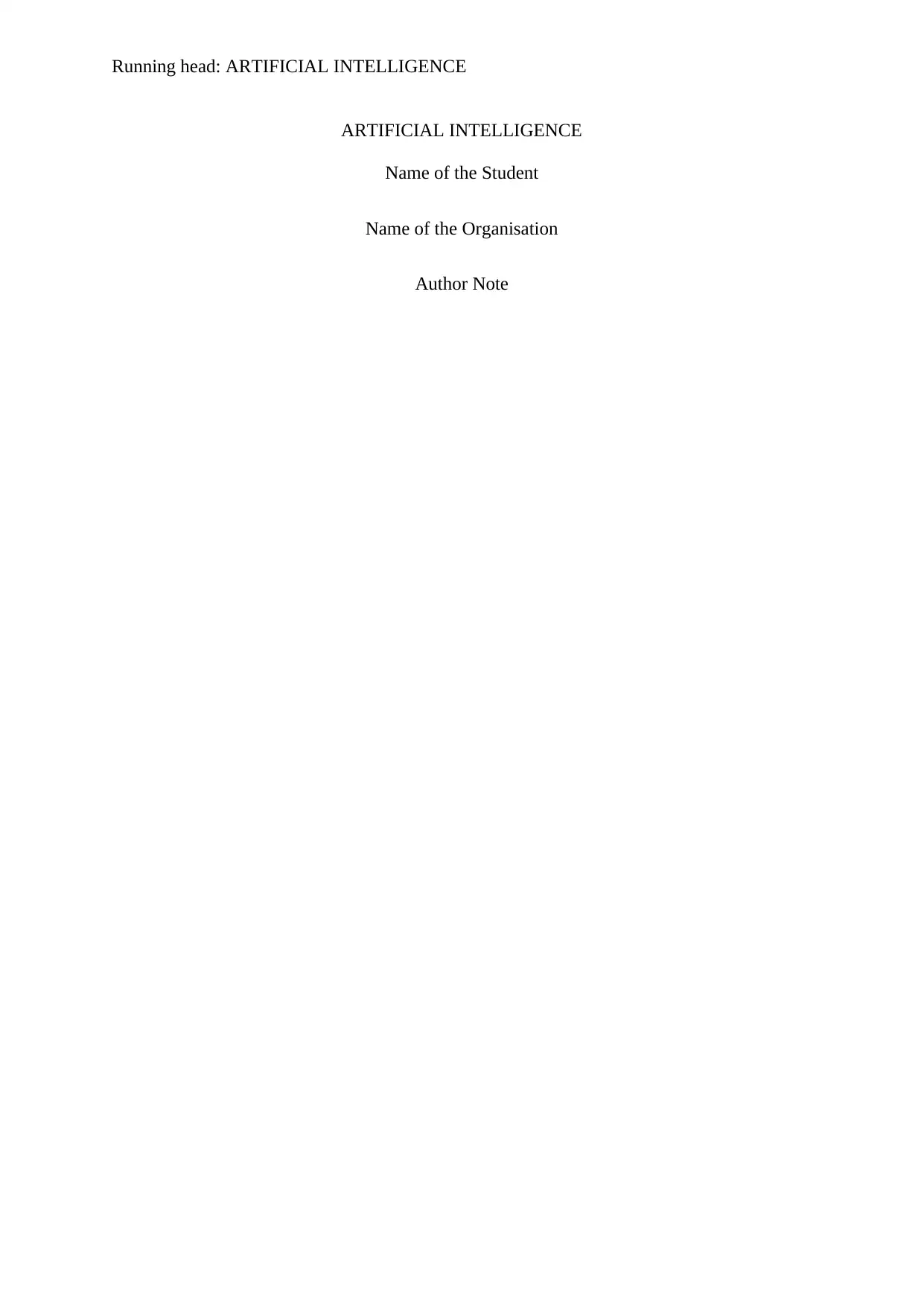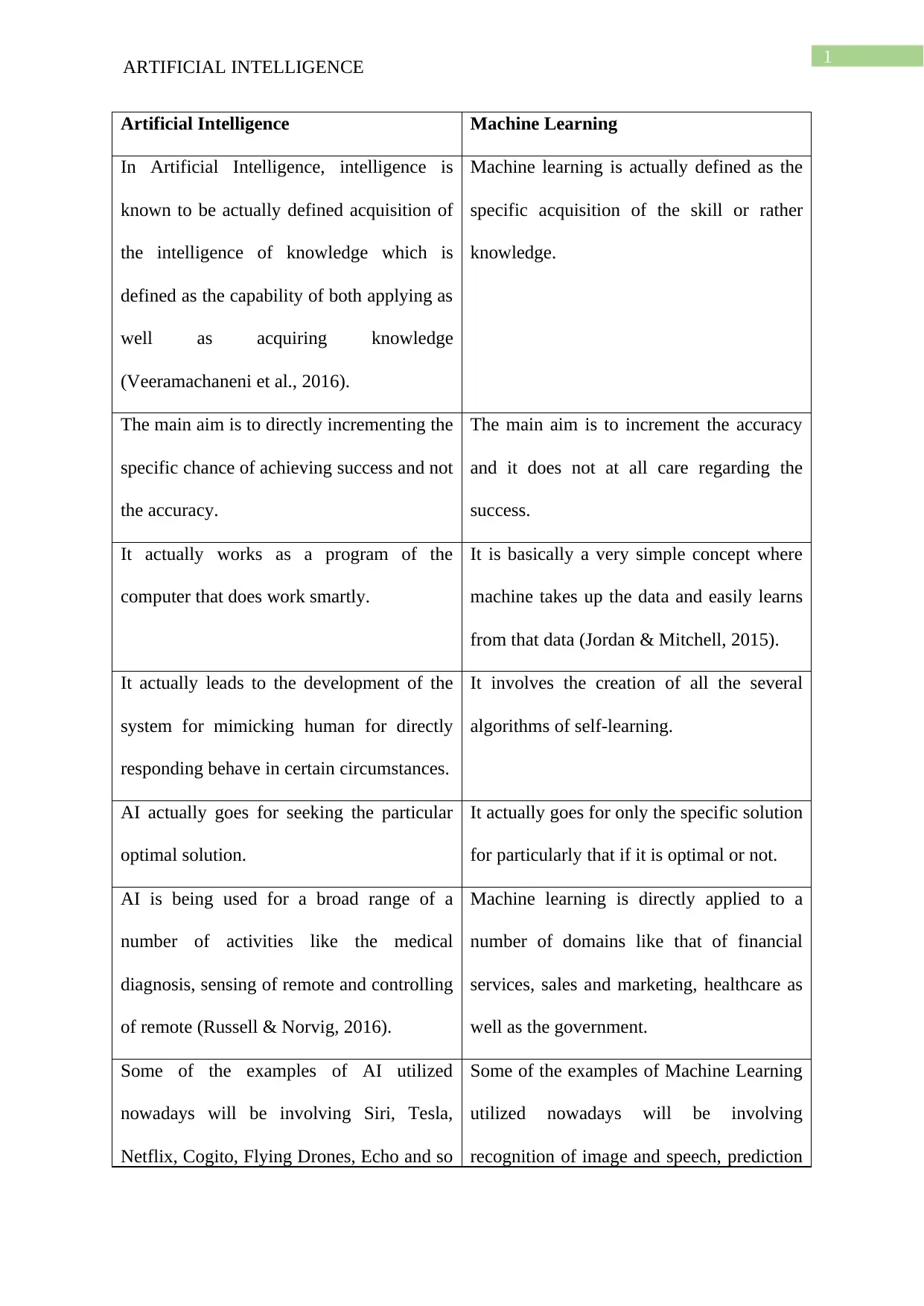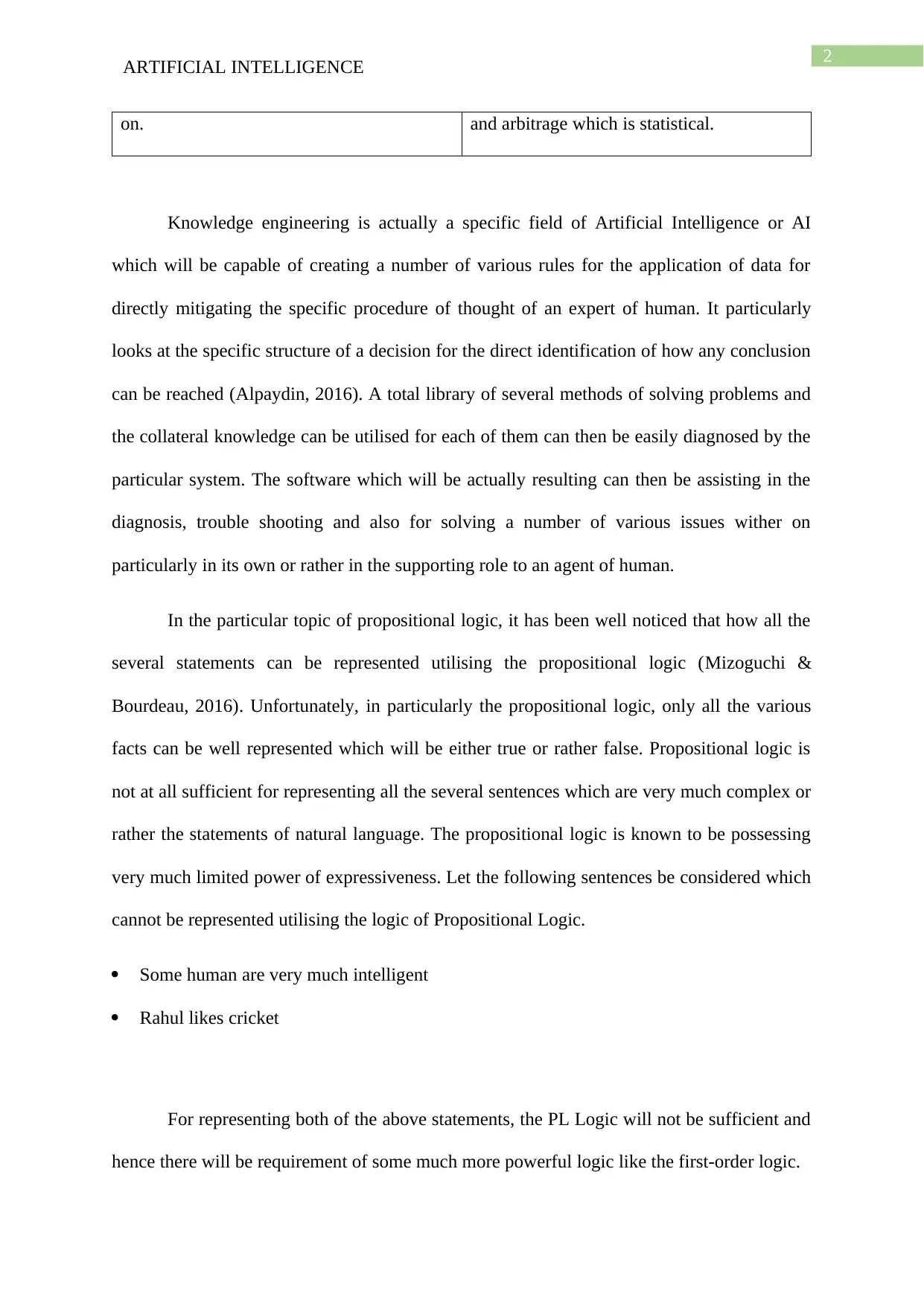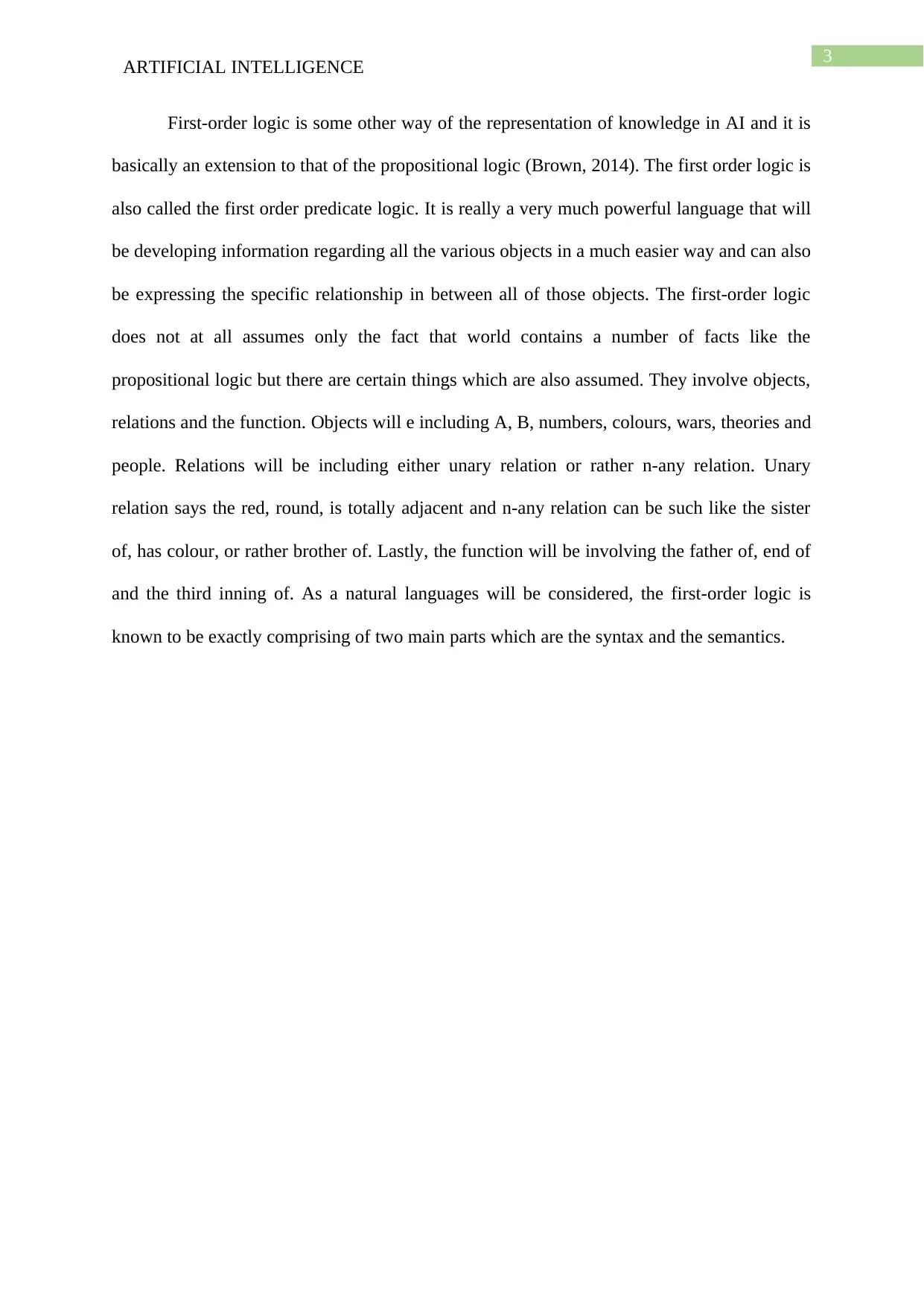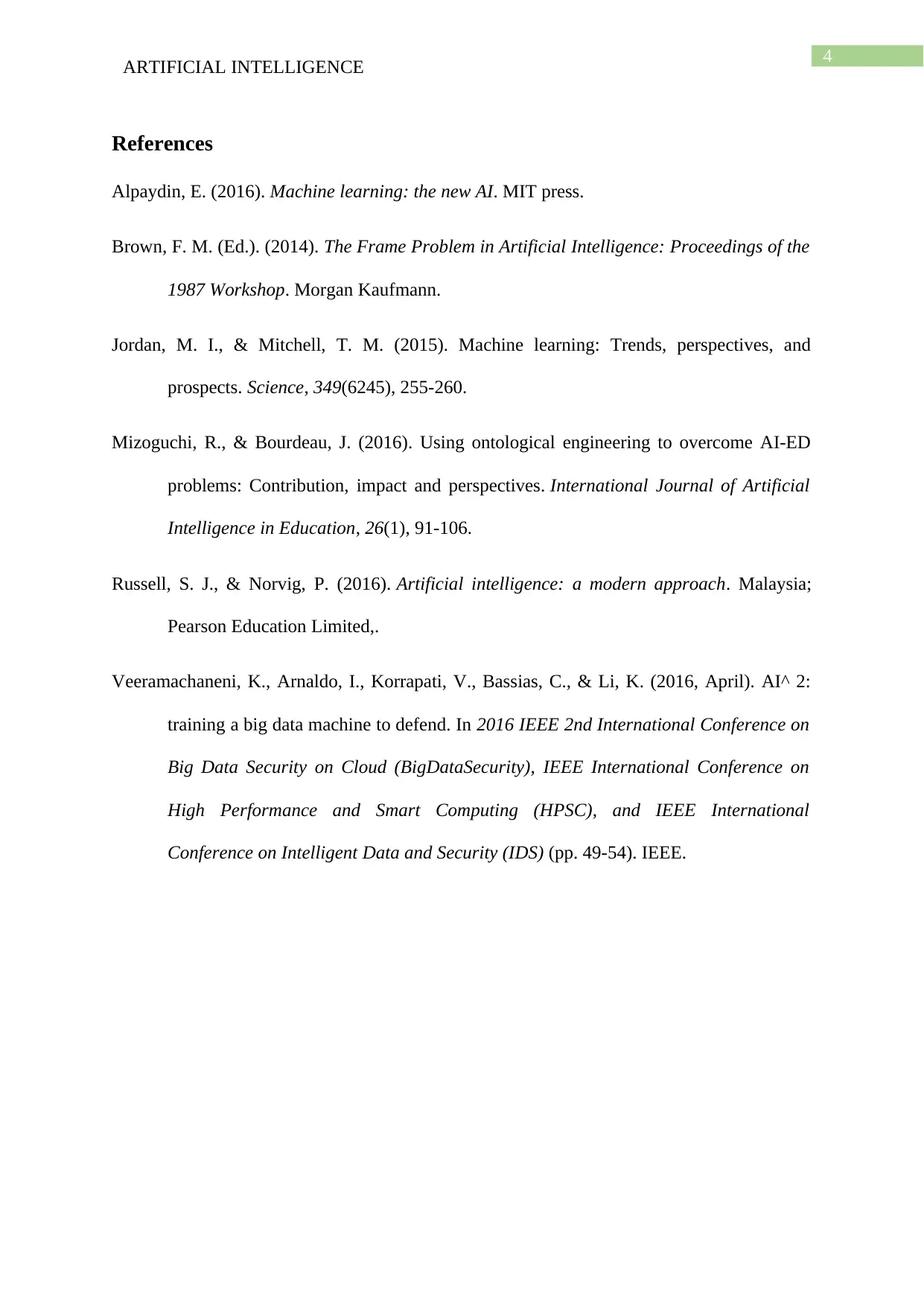Artificial Intelligence: Propositional Logic and First-Order Logic
VerifiedAdded on 2022/09/21
|5
|1101
|24
Essay
AI Summary
This essay delves into the realm of Artificial Intelligence (AI) and Machine Learning (ML), defining intelligence as the acquisition of knowledge and ML as the acquisition of skills to enhance success. It highlights the core differences, with AI aiming for optimal solutions and ML focusing on accuracy. The paper explores various applications of AI, including medical diagnosis, remote sensing, and control systems, while ML finds applications in financial services, healthcare, and marketing. It presents examples like Siri, Tesla, and Netflix. The essay then introduces Knowledge Engineering, a field within AI that creates rules for data application, aiding in problem-solving. Furthermore, it discusses propositional logic and its limitations in representing complex statements, contrasting it with the more powerful first-order logic. The first-order logic is described as an extension of propositional logic, allowing for the representation of objects, relations, and functions, offering a more comprehensive approach to knowledge representation in AI. The essay concludes by referencing key sources on AI and machine learning.
1 out of 5
